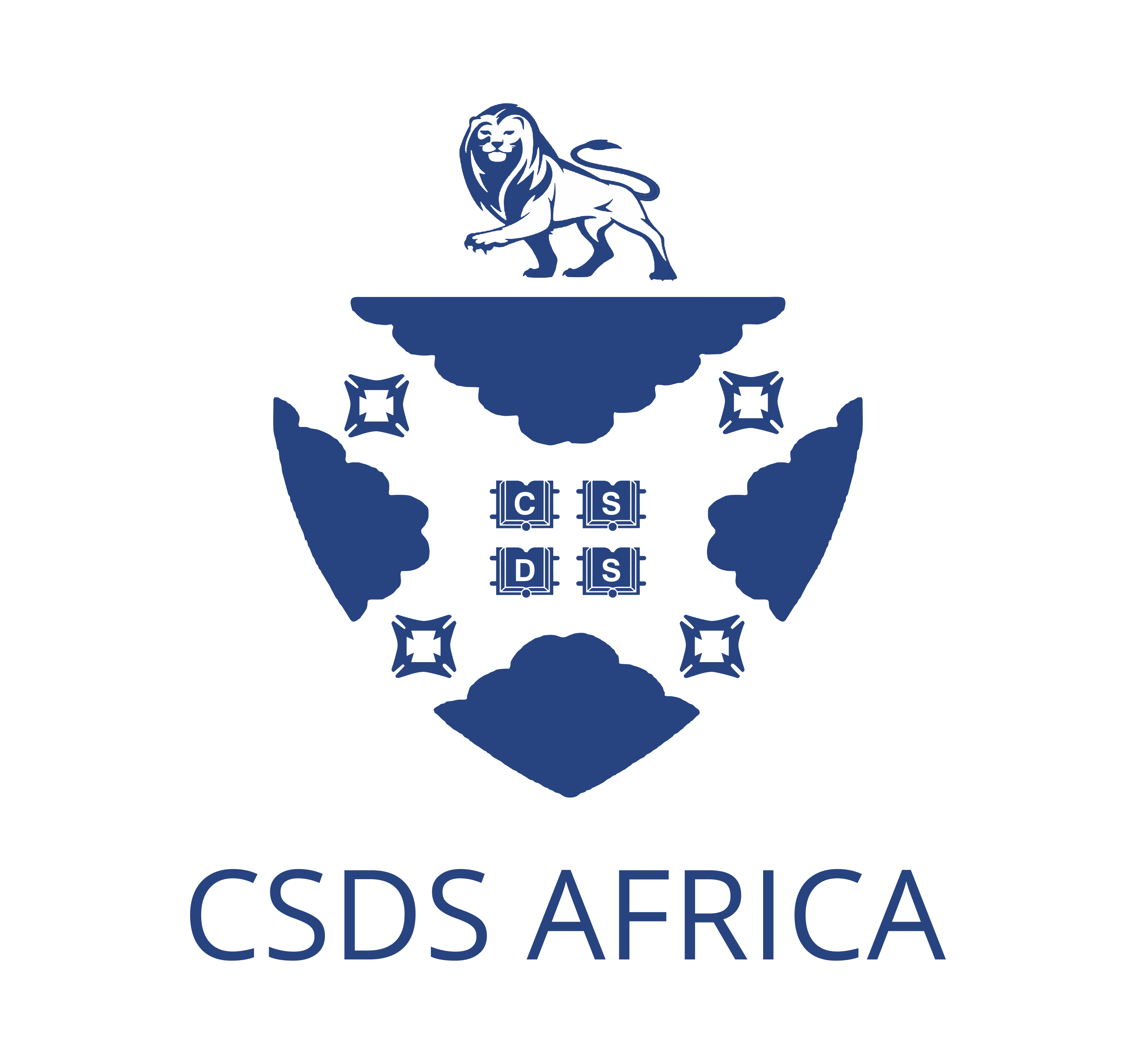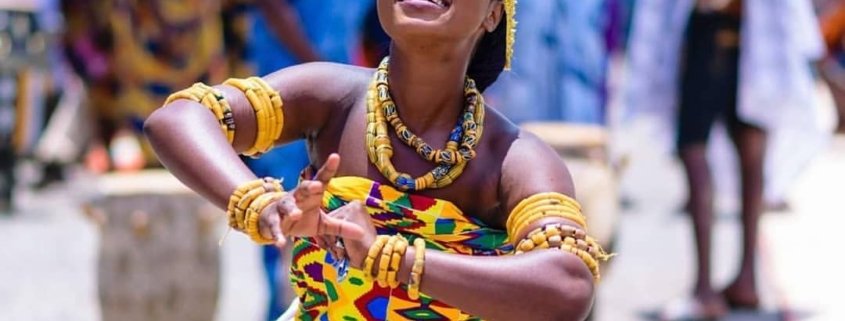The Impact of COVID-19 on the Creative Industries in Ghana
Professor Robert Ebo Hinson – Head, Department of Marketing and Entrepreneurship, University of Ghana, Business School
Nnamdi O. Madichie, PhD, FCIM, SHEA – Abertay University Dundee, Scotland, UK, Visiting Professor Unizik Business School, Awka, Nigeria
Belinda Bediako Asiedu – Doctoral Student, Department of Marketing and Entrepreneurship, University of Ghana, Business School
Acknowledgments. We would like to acknowledge insights from the following individuals in putting this article together. Elsie Attieku-Nuku, Head of Productions Roverman Productions, Accra Ghana; Vivian Boateng, CEO of Vivie’s Dance Factory (VDF), Accra Ghana; Clement Ashieteye (Clemento Suarez) Comedian and Creative Artist, Accra Ghana; and Foster Owusu, member of Nyansapo Theatre Group, Accra Ghana.
Introduction
Since the confirmation of the novel coronavirus (COVID-19) pandemic in Wuhan, China in the latter stages of 2019, it has spread like wildfire across the globe and promoting international cooperation in a way unimagined in peace times. Cases of COVID-19 have ravaged lives and livelihoods across the world with over thirty-four (34) countries in Africa recording cases, and prompting the World Health Organisation (WHO), through its Ethiopian Chief Executive Officer (CEO) – Tedros Ghebereyesus, to declare it as a global pandemic.
Consequently, our main focus in this article is to assess the impact of the restrictive measures around COVID-19 on the Creative Industries in Africa, with a specific focus on the Ghanaian context.
COVID-19 poses both serious health challenges as well as threatens the economies of many countries irrespective of whether these are in the developed, developing, transitional, or emerging economies. Africa is estimated to suffer most from the pillage of this pandemic due to its reportedly weak healthcare systems and economies. There is the need, therefore, for governments in the African region especially, to put in place robust systems and measures that can detect and control the virus in order to curtail its spread and flatten the curve and stem the tide in the loss of lives and livelihoods.
The Creative Industries
These worldwide lockdowns and closures to economies have numerous ramifications to all sectors, including one that has been neglected even in times of peace – the creative industries (including both visual and performing arts). There have been a plethora of initiatives put in place ranging from sensitization of the general public on the need for personal hygiene from handwashing or use of sanitizers, through social distancing measures, use of facial masks, and self-quarantine (Stay at Home Campaign) in order to curb the spread of the virus in the country.
Creative Industries is one sector of the economy that is largely dependent on audiences and in most cases, a shared experience in some form of intimacy. There is no art that does not require an audience – most activities in this space thrive on the energy of audiences.
COVID-19 has particularly dealt a big blow to the Creative Industries due to cancellation of events, which has resulted in the sudden and massive loss of revenue opportunities, especially for freelance professionals, amateurs, and not so well-established performers. Some freelance actors and amateurs are likely to face bankruptcy as most of them depend on invitations to perform at corporate and social events such as product launches, parties, weddings, and even funerals, in order to sustain their livelihoods. Meanwhile, some of the key containment measures of the COVID-19 pandemic stipulates that people be physically distant and-remain at home, avoiding public venue. In addition, the ban on public gatherings makes it evidential that a key factor in the creative process has been eliminated – the audience.

Currently, creative artists are all being forced onto the digital space now. It is either you join, or you go hungry. This phenomenon has its pros and cons, as arts predominantly is propelled by the energy, immediacy, and spontaneity that live, present-in the-moment audiences both generate and supply. Moreover, in cases where creative artists would want to perform as a group on these digital platforms, social distancing and other restrictions due to pandemic have made it impossible.
Creative Industries in Africa
COVID-19 has brought to the fore the indispensable role of the Creative Industries in the daily lives of individuals in particular and society in general. The availability of creative content does not only entertain but contributes to the psychological, physical, mental health, and well-being of individuals especially during this pandemic where movements and physical contacts are restricted. This has forced many production houses like Roverman Productions, Vivie’s Dance Factory (VDF), and Nyansapo Theatre Group (NTG), to grind to a halt, digital productions. Furthermore, Artists can no longer go to the studio to rehearse a play, practice dance routines, or to the recording studios to record music. They all need to adhere to the restrictions thereby stalling the creative process. A dance drama production ‘Addiction’ by VDF that had been rehearsed already and due for performance in April 2020 had to be canceled due to the current crises and in compliance with control measures put in place. This comes as a loss of revenue to VDF considering that preparation had been undertaken early in the year. This inevitably translates into a loss of revenue to VDF considering that preparations had been undertaken early in the year.
The media – both traditional and more recently, social – are depending on creative actors to help spread and educate the masses on the directives of health workers and government. Many institutions, organizations, actors, and performing artists have provided free online content in recent weeks for that purpose. There was a virtual concert organized by the musician Shatta Wale to entertain his fan base during the lockdown. Again, during the launch of the Tracker, a virtual concert was organized by the Ministry of Information where artists such as Shatta Wale, entertained audiences in the comfort of their homes.
Performers such as Clemento Suarez (aka Ashiteye, a popular Ghanaian comedian) have also been releasing funny, but educative short videos on COVID-19 for his fan base on social media. Such videos have been received well and gone viral. This artist also engages fans on his social media handles so as to entertain, educate, stay in touch, and grow his brand. The internet and social media have become the respite for many individuals during the 3-week partial lockdown of Greater Accra and Greater Kumasi Regions.
Consequently, this has compelled many creative actors onto the digital space to engage with the audience. For example, Uncle Ebo Whyte of Roverman Productions has also deployed his Instagram, Twitter, Facebook, and YouTube platforms to interact and present messages of motivation, hope, love, and relationship. That has also been well received by patrons who follow him on those platforms. Nyansapo, a theatre group known for the most viral show Comedy of the Gallery, also made the effort to engage audiences on their Instagram page (IG live) and went further to announce ‘a free show’ when the pandemic is over and the ban on social gatherings is lifted. According to them, it is their way of assuring their fans that life will get back to normal soon. VDF uploaded one of their productions, ‘Addictions’, which was supposed to have been performed on stage in April 2020, on YouTube, and gave 24 hours free access to audiences who may want to watch.
All these are sustainable measures being put in place by these creative artists/institutions to still keep people’s interest in the consumption of the arts when the pandemic is over – or put differently, in a post-COVID-19 era. However, although COVID-19 may be considered a pandemic that has changed normalcy in everyday lives, there is a general view among creative artists, that the pandemic with its attended restrictions, has afforded over-stressed performers some time to rest. Other creative artists such as playwrights, directors, actors, and other collaborators of arts now have some respite to refresh and sharpen their skills for when the pandemic is over. We argue, therefore, that this might just be the appropriate time most for rethinking and reflecting upon writing plays, poems, documentaries, film script, dance notation, sound mixing, and technical works.
The pandemic is an opportunity in disguise, as well as an avenue for reflecting upon the trends and developments of this oft-neglected sector of the economy. There are opinions that COVID-19 would not adversely affect the consumption of creative products and services. The explanation is that most consumers have been deprived of it during the period of the pandemic, hence, their desire to relive the good times prior to the pandemic is not particularly measurable or retrievable. The expectation is that consumption of the works of creatives will be in high demand as people opt to take solace in entertainment in whatever form (theatre, talk shows, cinema and music festivals, etc.).
Concluding Remarks
To ensure continuity in terms of creative consumption, there is an urgent need for leveraging new technology and engaging with networks in the digital space – be it artificial intelligence (AI) augmented reality (AR), virtual reality (VR), or whatever other label exists out there. However, this may just be one viable alternative, but by no means a substitute for live performances.
In conclusion, we surmise that although the COVID-19 crisis may have disrupted the preferred consumption patterns for the creative arts, as well as accentuated the economic hardships faced by creative artists who have become even more constrained in undertaking paid live performances, there is a silver lining in the grey cloud. What may be seen as an ongoing curse also presents a blessing in the opportunity for the Creative Industries in Ghana to innovate by leveraging the digital space as they reimagine new pathways to upscaling the creative content for the future.
References
Madichie, N. (2020) Creative Industries and Africa’s Development. Paper presented at the 8th Distinguished Marketing Practitioner Seminar series. University of Ghana.
http://ugbs.ug.edu.gh/news/dome-holds-8th-practitioner-series-postgraduate-students
Madichie, N. (2020) Couture from the Congo, Catalyst Magazine, Issue 1, 34-36. Chartered Institute of Marketing. https://www.researchgate.net/publication/338980068_Couture_from_the_Congo
[1] World Health Organization (2010) Coronavirus disease 2019 (COVID-19) Situation Report – 40. February, 29, 2020. Online at: https://www.who.int/docs/default-source/coronaviruse/situation-reports/20200229-sitrep-40-covid-19.pdf?sfvrsn=7203e653_2
[2] Madichie, N. O. (2019). Arts marketing. In Contemporary issues in marketing: principles and practice (pp. 388-419). SAGE Publications Ltd.
[3] Taura, N. D., Bolat, E., & Madichie, N. O. (Eds.). (2019). Digital Entrepreneurship in Sub-Saharan Africa: Challenges, Opportunities and Prospects. Springer.
[4] Madichie, N. O., Taura, N. D., & Bolat, E. (2019). What Next for Digital Entrepreneurship in Sub-Saharan Africa? In Digital Entrepreneurship in Sub-Saharan Africa (pp. 221-240). Palgrave Macmillan, Cham.
Madichie, N. (2019) Measuring Up. Catalyst Magazine, Issue 4, pp. 32-33. Chartered Institute of Marketing. https://www.researchgate.net/publication/336748898_Measuring_Up
Madichie, N. (Tekedia, February 14, 2020). Dundee to Accra: Creative Industries Mapping and Potential Collaborations. Retrieved from: https://www.tekedia.com/dundee-to-accra-creative-industries-mapping-and-potential-collaborations/
Madichie, N. O., Ajakaiye, B. O., & Ratten, V. (2019). The Impact of New Media (Digital) and Globalisation on Nollywood. In Digital Entrepreneurship in Sub-Saharan Africa (pp. 89-121). Palgrave Macmillan, Cham.




Leave a Reply
Want to join the discussion?Feel free to contribute!